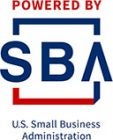While “traditional” lenders are often the first choice for businesses as they lock in financing, there are many reasons why traditional lenders are off the table as an option for some. Past credit history, limited personal or business cash flow, or weakness in any of the 5 C’s of credit are some of the reasons business owners may need to look beyond the big banks and into the broad ranks of alternative lending platforms.
The good news is that many of these alternative lenders are solid, trustworthy, viable options for businesses that need a cash infusion. But not everyone offering money is going to be worth the risk—there are some lenders who prey upon businesses that are in a pinch. It’s important to go into the process knowing what to look out for to ensure you only sign on with trustworthy institutions and with all of the fine print clearly laid out.
Below, RISBDC Small Business Growth Hub Director Paul Harden and Southern Rhode Island Regional Director Josh Daly share their insight into these less-traditional funding sources. We hope this information helps you make good choices about using an alternative lender to help you reach your small business dreams.
What is an alternative lending platform?
While there’s no set definition for an alternative lender, a good starting point is to describe them as “non-bank lenders” who are not a traditional local bank with a physical branch in your neighborhood. Some are entities that focus on community development (and are backed by the SBA, CDFI, or other trustworth institutions). Others are internet lenders promising quick cash, where it’s a bit of a “Wild West” in terms of regulations.
Though they offer quick cash, for the purposes of this post, credit cards are not considered as an alternate lending platform.
How do you find a trustworthy lending source?
If you have an existing financial arrangement with a lender that you trust—say, a mortgage on your building or home—it’s always worth approaching them first. Two other places to start are with local non-bank lenders. Here in RI, the Community Investment Corporation and SEED are trusted institutions for business loans if you are turned down by traditional banks.
How can you tell if a lender is trustworthy?
Unfortunately, vetting a lender is a little bit science and a little bit of an art. A good rule of thumb is to be wary of anything that looks too good to be true.
Generally, you want to look for an alternative lender that has reasonable and appropriate rates and fees (see below), is clear and upfront about the true costs of borrowing, and has a reputation for being good to work with throughout the life of the loan.
Start by checking out their website, but don’t stop there: many shady lenders have slick looking websites (and some legitimate lenders have a humble web presence). Don’t trust testimonials on a lender’s website to be the big picture—Google the business name and specifically look for reviews on neutral websites. Look them up on the Better Business Bureau, too. And be suspicious of recommendations that come from people who are paid a fee by the business to refer you there.
Legitimate lending sources take time to do their due diligence. Beware of institutions that promise fast access to cash. There’s no set minimum time, but it’s common for banks to take 30 to 60 days to review, approve and fund a loan.
Interest rates: Comparing apples to apples
Be cautious that you fully understand the interest rate that you are agreeing to pay. For example, a lender may promote a loan that is 1.5% per month, because that is a small number that appeals to borrowers. But it works out to 18% per year, which is quite high. Also, beware of comparing a yearly interest rate to the APR (annual percentage rate) which, for loans, can also include origination costs and other fees amortized over the life of the loan.
What is the interest rate?
Make sure that you understand whether your rate is fixed, or will change in the future. Financing parts of your business with an alternate loan that has an enticingly low interest offer is not a good idea if after a period of time (usually 12-18 months), the rate skyrockets to 18-20% (or more). Also beware of loans that will default to a much higher interest rate if you are late with a payment, especially if the loan may never return to its original rate. It is much safer to choose a loan with a higher initial interest rate that is steady and unchanging, to plan on a consistent payment for the life of the loan.
What interest rates are too high?
Rates for alternative lenders may be higher than traditional lenders, because their loan pool includes more risk. Appropriate interest rates from alternative lenders may range from 8-15%. Rates from 16-19% are generally in the “gray zone,” where we advise caution, and any rates above 20% we would classify as exorbitant.
What fees can you expect?
This is difficult to speak to, because fees can—and will—be wide-ranging. Sometimes you will be asked to pay a fee upfront, other fees will be amortized over the life of the loan. Some will come out of the total amount that you borrow. Also, some lenders will charge you an application fee of up to a couple hundred dollars regardless of whether you are approved.
What’s important to consider is the fee as a total percentage of the loan, and whether you feel comfortable that the fees have been clearly explained, and not hidden in a final document.
What will you need to provide?
For legitimate lenders, be prepared to provide:
- Tax returns going back 2-3 years
- Detailed business-related debt
- Personal financial statements, including your non-business debt
- Business profit and loss statements going back 2-3 years
- A statement on how you plan to use the money you are borrowing
- A personal guarantee
For both traditional banks and alternative lenders, you will be personally on the hook for repaying the loan even if the business fails. The personal guarantee will come in the form of detailing what collateral you hold: your home, business assets, etc.
What term length is best?
The right length of your loan can vary widely depending on your business, the size of the loan, and the purpose of the loan. At the RISBDC, we recommend getting a slightly longer term loan than you think you may need, particularly for shorter term loans. For example, getting a 3-year loan instead of a 2-year loan gives you more cushion if things don’t go exactly as planned. The hardest thing to do is to renegotiate a loan once it’s set.
What questions should you ask?
In addition to confirming interest rates and fees, you’ll want to know:
- What is the payment schedule?
- How will payments be made? Can I make an automatic deduction, or do I need to send a check every month?
- What happens if I am late with a payment? Is there a grace period?
- If I miss a payment, what happens to the interest rate?
- Is there a prepayment penalty?
In the end, it’s always wise to have a lawyer vet any loan documents before signing to ensure the terms are clear and standard.
If you need assistance preparing to land a small business loan, our small business consultants can help. Schedule an appointment today.




